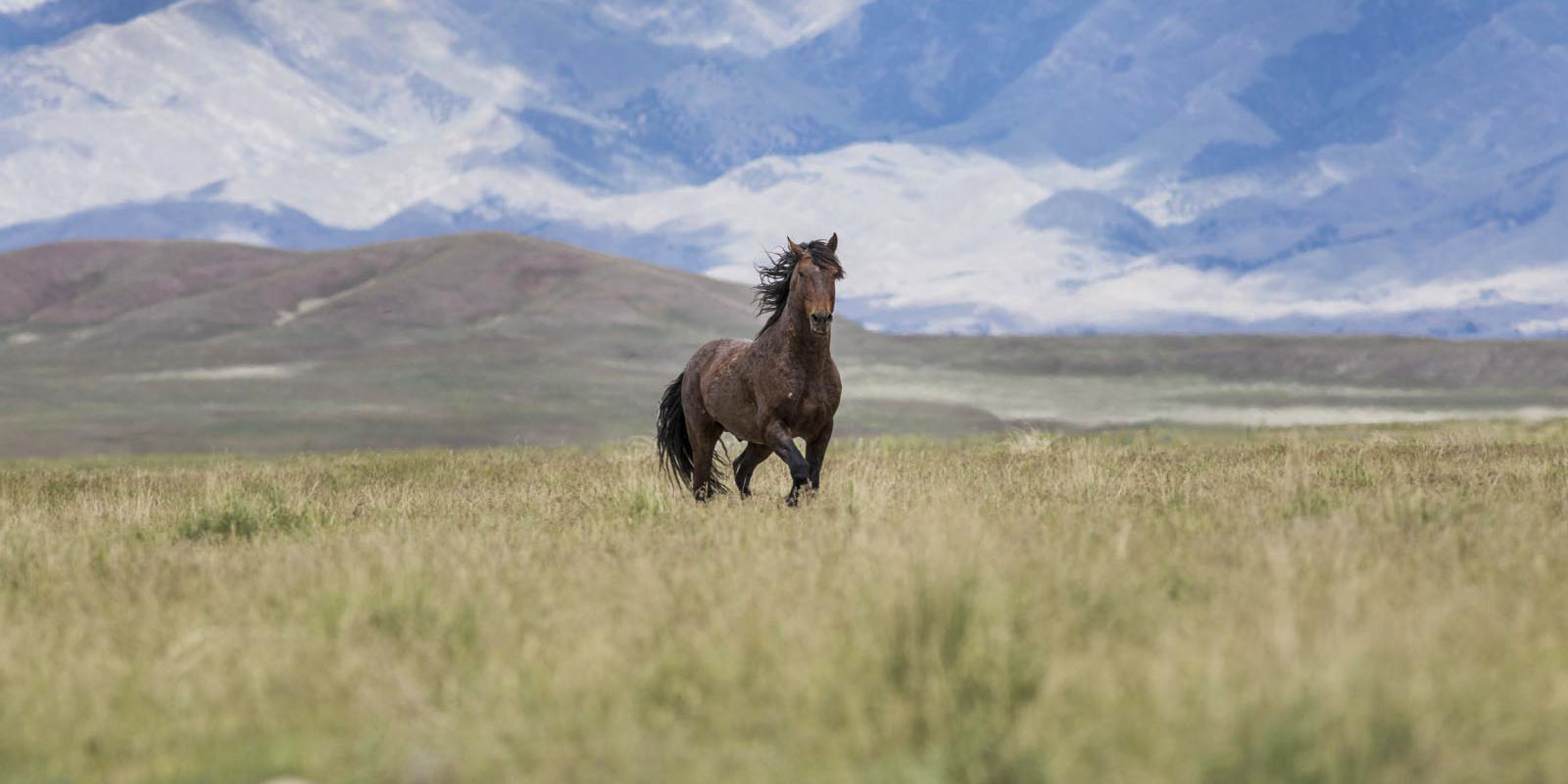Citing violations of the U.S. Constitution and three federal laws, an alliance of wild horse protection and animal welfare advocates filed a lawsuit on September 21, 2018 in the U.S. District Court in Portland. The groups seek to enjoin the Bureau of Land Management (BLM) from proceeding with controversial and dangerous surgical experiments to remove the ovaries of wild mares at BLM’s Wild Horse Corrals in Hines, Oregon.
The complaint was filed on behalf of The Cloud Foundation (TCF) and its executive director Ginger Kathrens, who is also the Humane Advocate on the BLM’s National Wild Horse and Burro Advisory Board; the American Wild Horse Campaign (AWHC); the Animal Welfare Institute (AWI); and wildlife photographer Carol Walker, who is also a Director of Field Documentation for the Wild Horse Freedom Federation, by Nick Lawton of the public interest law firm Meyer, Glitzenstein and Eubanks LLP.
A key demand of the legal action is the right to meaningful public observation and video recording of the experiments to improve public awareness of how the BLM is treating these federally protected wild horses and help the public inform BLM that this inhumane form of sterilization is not socially acceptable.
The legal action also alleges that the experiments, which involve performing an outdated surgical procedure called ovariectomy via colpotomy (a blind surgery in which a veterinarian inserts his arm into a mares’ abdominal cavity through an incision in the vaginal wall, manually locates the ovaries, then twists, severs and removes them using a rod like tool with a chain on the end) are unscientific, inhumane and dangerous, and will result in pain, suffering and potentially life-threatening complications for wild mares.
This is the BLM’s second attempt to conduct research on the surgical removal of the ovaries of wild mares. In 2016, AWHC and TCF sued to uphold their first amendment right to observe the experiments, a major objective of which was to determine the social acceptability of the procedure. The BLM cancelled the experiments, which it intended to conduct in partnership with Oregon State University — instead of providing public observation.
In its renewed attempt to conduct the research this year, the BLM dropped the objective of determining social acceptability in order to avoid providing meaningful observation. Instead, the BLM is offering limited observation through the doorway of a room adjacent to the surgical suite on a first-come, first-served basis with no independent veterinary observation provided.
When the agency re-released the sterilization research proposal, the BLM announced that it would be conducting the experiments in conjunction with Colorado State University (CSU). The University was to provide expertise in monitoring and assessing the welfare impacts of the surgeries on the wild mares. However, in August, CSU withdrew from the project. Instead of finding another academic institution with expertise in animal welfare monitoring and assessment, the BLM dropped CSU’s scientific observation of animal welfare from its study design.
Then, on September 13, 2018, the BLM announced that it was moving forward with the spay feasibility study despite opposition from the public and veterinarians, a warning from the National Academy of Sciences that the procedure was “inadvisable” due to health risks, and after two major research institutions – CSU and OSU – ended their affiliations with the project.
Legal:
- Government Reply in Support of Motion to Dismiss
- Complaint as Filed
- Filed Motion for Preliminary Injunction
- Government's Opposition to Motion for Preliminary Injunction
- Filed Opposition to Stay of Entry of Proposed Order
- Order Granting Preliminary Injunction
- BLM Extension Motion for Answer
- BLM Motion for Clarification
- IBLA Decision
- Joint Status Report
- Motion to Stay
- Notice that Appropriations Have Been Restored


